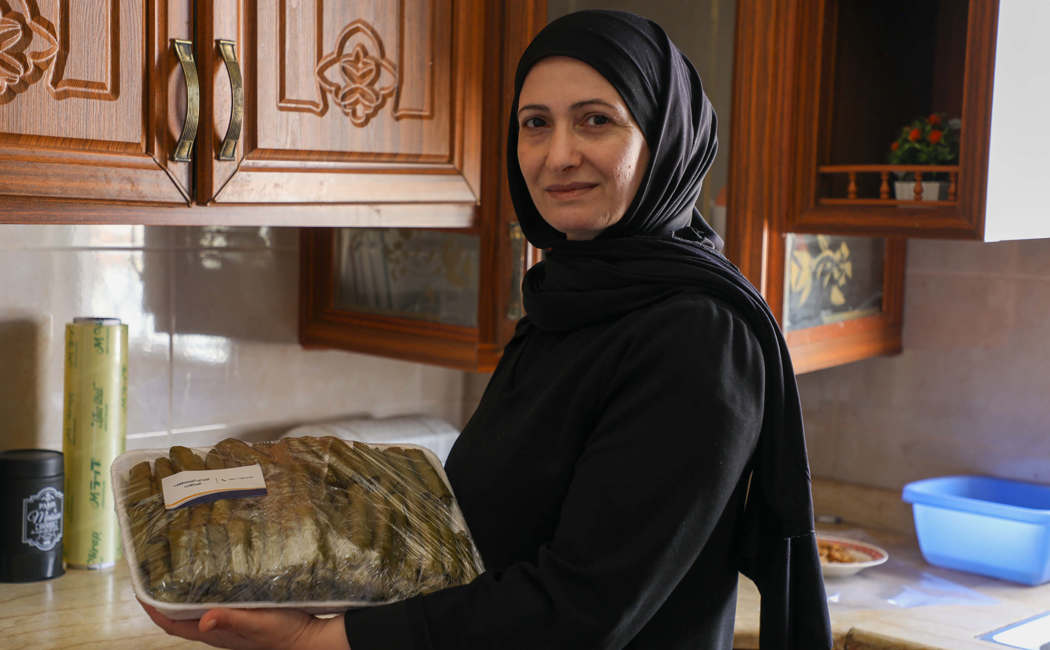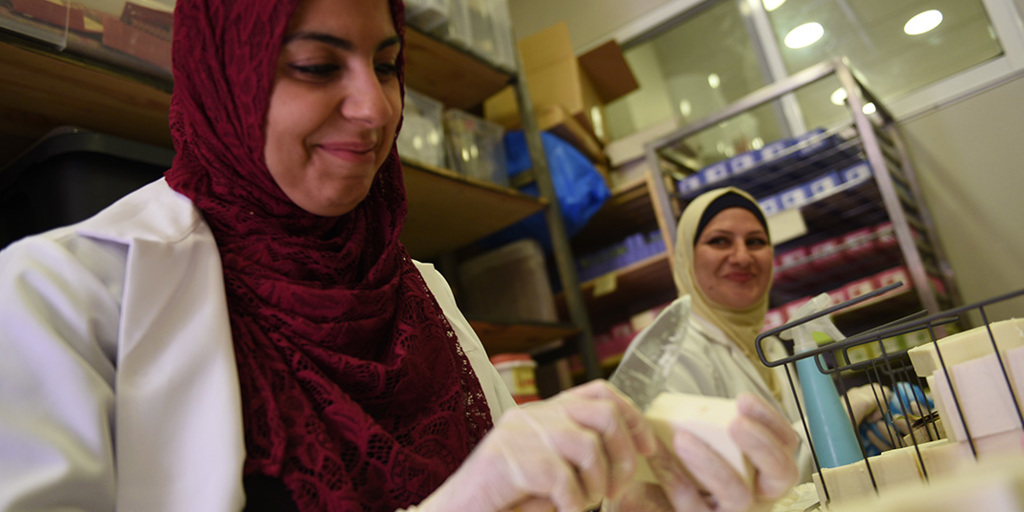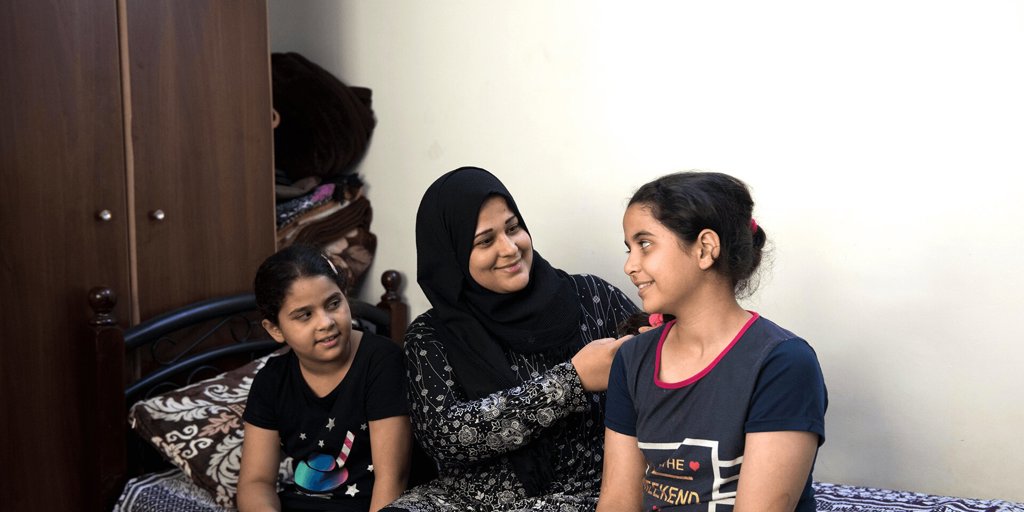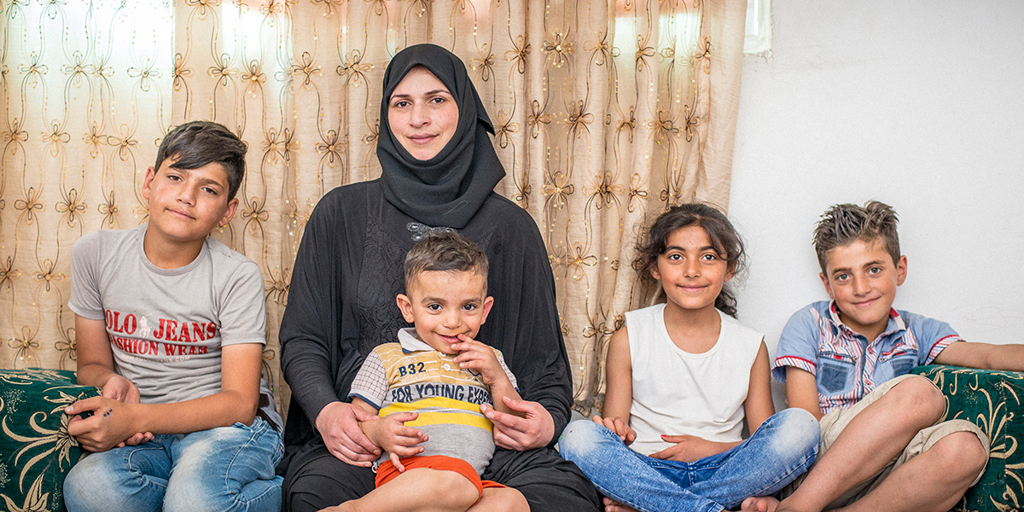“People like my food and it gives me purpose,” she says of her thriving enterprise. “The pressure that I couldn’t provide anything for my children has gone.”
As the Syrian crisis enters its second decade, there is little prospect for women like Ghada to return to their home country, and little realistic chance of resettlement elsewhere. “For the first couple of years, we stayed thinking we would quickly return home,” she says. “But the things we were used to in our country disappeared. So, we had to get involved in the local community. We had to become productive to help ourselves as well as the community around us.”
Donors to the Leading Women Fund support Syrian refugee women in Jordan who’ve found themselves the head of their household, just like Ghada. This vital cash assistance gives women the dignity to buy what they need for their family, as well as enabling them to shop at local Jordanian stores. Once they’ve found their feet, though, many of these women are keen to explore different ways to participate in their new communities.
Recognising this, UNHCR last year developed a wide-ranging pilot project across five cities in Jordan that aims to provide vocational training, mentorship and support to business-minded Syrian refugees and Jordanian citizens. Some of the places on the pilot were funded by the Leading Women Fund’s Mother’s Day Appeal. Seed capital and ongoing mentoring is also part of the scheme.
“Economic inclusion means enabling refugees to provide for themselves and be net contributors to economic development as consumers, workers and entrepreneurs. It is one of the most important keys to enhancing protection and unlocking solutions for refugees.” – Filippo Grandi, UN High Commissioner for Refugees
UNHCR has experience in delivering these kinds of projects in Jordan. Since the government legislated in 2019 to give licences to home-based businesses, as a way of stimulating the gig economy, UNHCR has worked with local organisations such as Blumont to encourage entrepreneurs like Ghada to register. So far, they’ve supported 222 projects with Blumont – 56 belonging to Syrian refugees and 166 for Jordanians.
During lockdown, Ghada saw demand increase for her traditional dishes – such as makdous (pickled eggplant), yalangi (stuffed vine leaves), kibbeh and different types of pickles – as customers stayed home. “People stopped going to restaurants; they weren’t able to eat out and so turned to takeaway,” she explains. “This has been a benefit to me.”
During Ramadan, interest for Ghada’s food increased dramatically again, with customers from other cities placing orders for her products. And while her business hasn’t reached the stage where it meets all of her expenses, Ghada has a newfound confidence in her ability to provide for her five girls.
“I hope one day to open my own kitchen,” she says. “Expand beyond working from home and employ people.”
SUPPORT WOMEN LIKE GHADA
















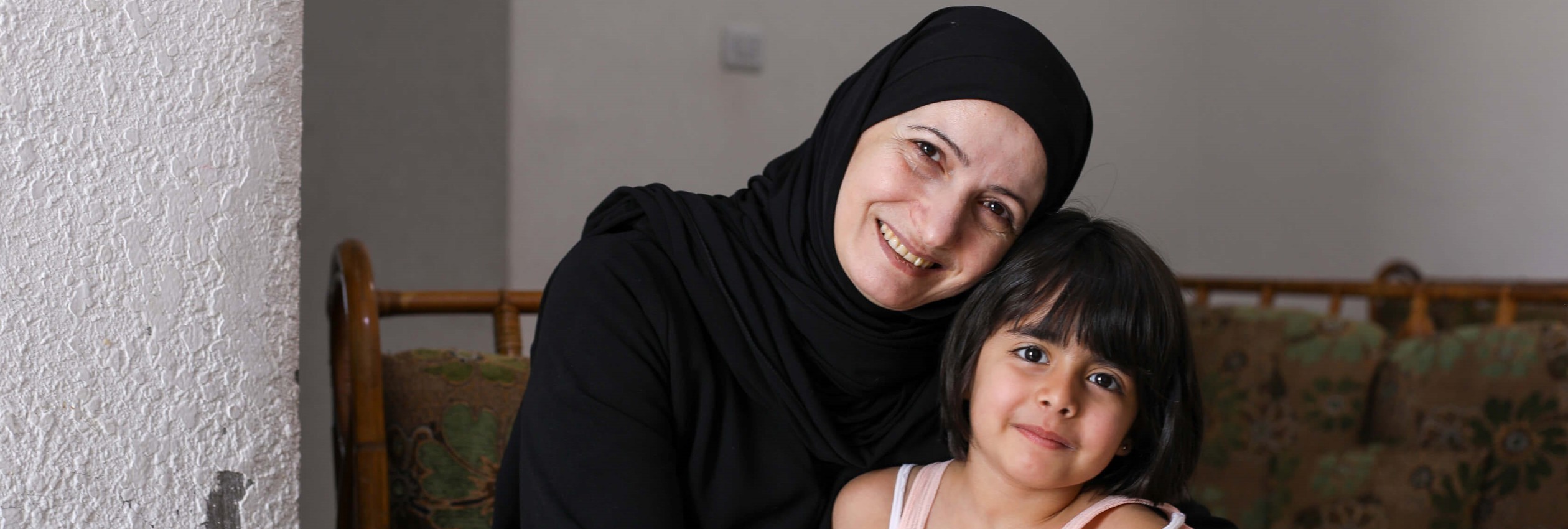
 Jordan
Jordan
